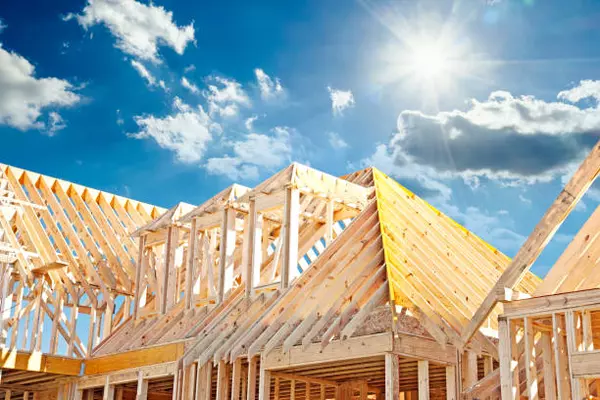Understanding Closing Costs—What Every Homebuyer Needs to Know

When buying a home, most people focus on the down payment and monthly mortgage payments, but there’s another set of expenses you’ll need to plan for—closing costs. These costs can add up, and if you’re not prepared, they can come as a surprise. So, what exactly are closing costs, and how can you budget for them? Let’s break it down so you can head into your closing day with confidence.
1. What Are Closing Costs?
Closing costs refer to the fees and expenses that come with finalizing a real estate transaction. They cover everything from appraisals and inspections to legal paperwork and taxes. Both buyers and sellers have closing costs, but as a buyer, you’ll be responsible for most of these fees. Understanding these costs ahead of time ensures you’re not caught off guard when it’s time to sign the paperwork.
- Closing costs are fees associated with finalizing a home purchase.
- Buyers and sellers both pay closing costs, but buyers typically cover the majority.
- Knowing what to expect prevents surprises at closing.
2. Common Types of Closing Costs
Several fees make up your total closing costs. While these costs may vary by state and lender, here are the most common ones:
-
Loan Origination Fees: Charged by your lender for processing the mortgage.
-
Appraisal Fees: To determine the home’s value.
-
Title Insurance: Protects you and the lender from potential disputes over the property’s ownership.
-
Home Inspection Fees: To uncover any issues with the home before purchase.
-
Property Taxes: You may need to pay a portion of the year’s property taxes at closing.
-
Attorney Fees: Covers the cost of legal assistance with the paperwork.
-
Escrow Fees: For managing the escrow account and distributing funds appropriately.
-
Loan origination fees, appraisal fees, and title insurance are standard costs.
-
Home inspection fees and property taxes are also common closing expenses.
-
Attorney and escrow fees may apply, depending on your location.
3. How Much Are Closing Costs?
Closing costs typically range between 2% to 5% of the home’s purchase price. For example, on a $300,000 home, closing costs could fall between $6,000 and $15,000. The exact amount will depend on your lender, the state you live in, and the specific details of your loan.
- Closing costs usually range between 2% to 5% of the home’s purchase price.
- On a $300,000 home, you might pay between $6,000 and $15,000.
- Costs vary based on your loan type, location, and lender fees.
4. Who Pays Closing Costs?
In most cases, the buyer is responsible for the bulk of the closing costs. However, you may be able to negotiate with the seller to cover some of these costs as part of the sale agreement. This is known as a seller concession, and it can help reduce your out-of-pocket expenses at closing.
- Buyers typically cover most closing costs.
- Seller concessions can help buyers reduce their closing costs.
- Negotiating with the seller might save you money on fees.
5. When Are Closing Costs Paid?
Closing costs are paid at the closing table, usually during the final step of the home-buying process. You’ll receive a detailed breakdown of these costs a few days before closing in a document called the Closing Disclosure. This gives you a chance to review all the charges and ensure everything is in order before you finalize the purchase.
- Closing costs are paid at the closing table during the final step of the process.
- You’ll receive a Closing Disclosure with a detailed breakdown of costs before closing.
- Review the document carefully to avoid any unexpected charges.
6. Can Closing Costs Be Rolled Into the Loan?
In some cases, you can roll your closing costs into the loan amount. This means you’ll pay off the costs over time instead of upfront at closing. Keep in mind that this option will increase your monthly mortgage payment and the total amount of interest you pay over the life of the loan, so it’s essential to weigh the pros and cons.
- Some lenders allow you to roll closing costs into the loan.
- This option increases your monthly payments and overall loan balance.
- Weigh the pros and cons before deciding to roll costs into the loan.
7. How to Reduce Closing Costs
If closing costs are higher than expected, there are ways to reduce them. First, shop around and compare lenders to find one with lower fees. You can also ask your lender about closing cost assistance programs, which may be available for first-time homebuyers or those with lower incomes. Lastly, negotiating seller concessions can also help lower your closing expenses.
- Shop around to find a lender with lower closing fees.
- Look for closing cost assistance programs, especially if you’re a first-time buyer.
- Negotiate with the seller to cover some of the closing costs.
In Summary
Closing costs are an essential part of the home-buying process, and understanding them upfront can save you from surprises on closing day. By knowing what these costs include, how much to expect, and ways to reduce them, you’ll be well-prepared to budget for your new home. Remember, a little preparation goes a long way in ensuring a smooth and stress-free closing.
Need Help Navigating Closing Costs?
If you're ready to buy a home and want expert guidance on understanding and reducing closing costs, I'm here to help! Contact me today for advice and support throughout your home-buying journey.
Categories
Recent Posts











